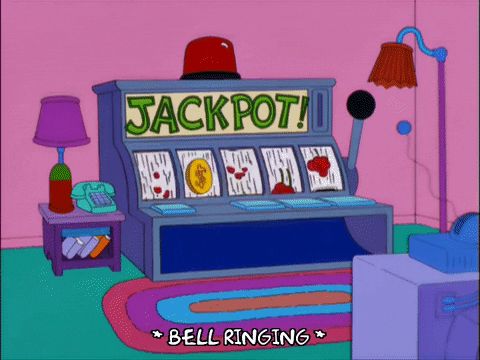One of the big news stories in the last month was golfer Phil Mickelson admitting that he was addicted to gambling, although he didn’t address reports that he lost as much as $1 billion over the years. “If you ever cross the line of moderation and enter into addiction, hopefully you won’t confuse your enablers as friends like I did. Hopefully you won’t have to deal with these difficult moments publicly so others can profit off you like I have,” he wrote on X, which is sad and brutal.
Gambling addiction is something I’ve never understood, because I don’t understand the appeal of gambling. The odds are against you! I participate in sports brackets with groups of friends for the social aspect, but I don’t get the fun of slot machines or playing blackjack with an unfair deck. People in casino ads look like they are having the time of their lives, but actual people in actual casinos look sad.
Obviously, a lot of people gamble without a problem, usually because they have a budget and stick to it. My own father loved to play the lottery, $5 in Ohio and $5 in Pennsylvania every week. There used to be a drugstore on the state line near his office, Penn Ohio Drugs, that sold lottery tickets for both states. One week, he hit 5 out 6 in the Ohio Pick 6, then he hit 4 out of 6 the next week. (Both paid something.) What are the odds?
I worked with traders who loved to gamble, and they were open about losses because losses are how you get comped. They would regularly discuss which casinos gave what perks to losers. They knew the odds were against them, and they expected a cut of the casino’s profit in exchange.
If anyone tells you about how they got upgraded to a suite and were handed tickets for Usher’s show, you know they are losing money. I’d rather just pay for the room and the concert tickets outright.
I’m thinking about this because I just finished revisions on the 5th edition of Day Trading for Dummies, which should come out in February. The line between day trading and gambling is thin. In zero-sum markets like technical trading and options, the odds are neutral, and a trader who has good risk management on the downside and allows runs on the upside should come out ahead. Whether the profit is enough to compensate for the time and energy of trading is another story.
But a lot of traders approach day trading like a casino. They bet on shares or call options or crypto going up, often with no logic for it and no attention to risk management. They lose money, and they don’t even get free drinks as compensation! But it’s more socially acceptable than gambling, and that’s why people do it.
If you love gambling, I would love to know why.





